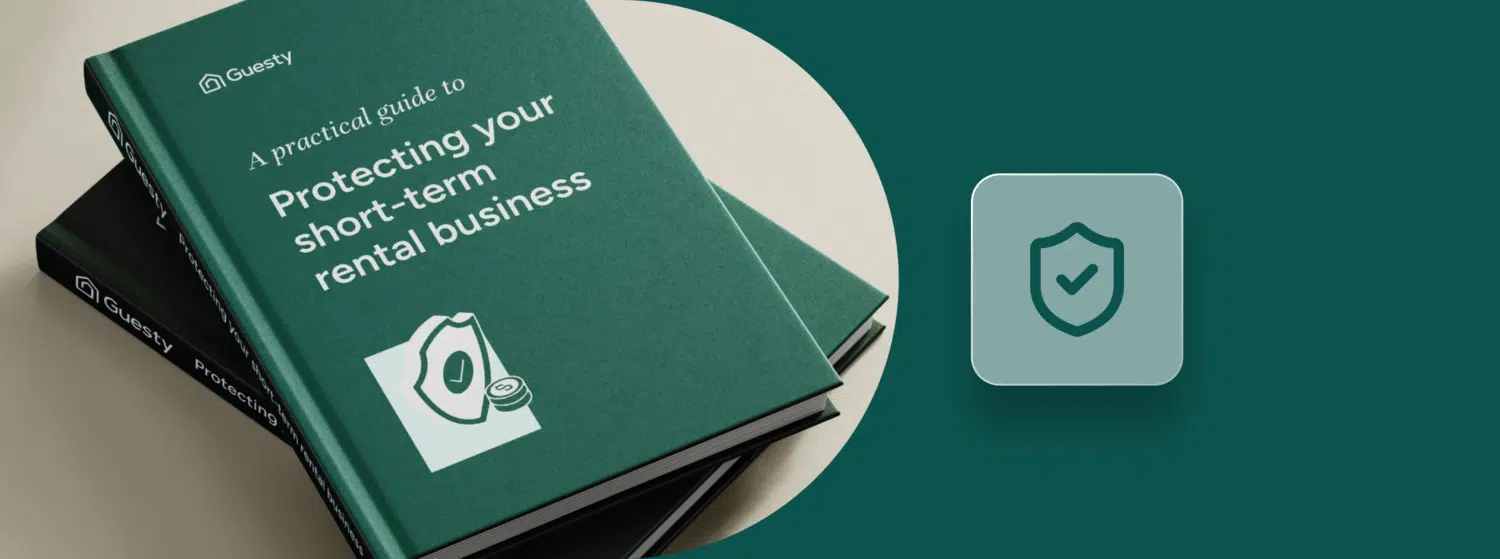From urban apartments to beachfront villas, short-term rentals (STRs) have reshaped the travel industry, offering unique stays and new revenue opportunities. But as the industry grows, so do the risks—fraudulent bookings, guest-related damages, and liability issues that can quickly erode profits.
Yet, many property managers remain focused on maximizing revenue, often overlooking the vulnerabilities that can threaten their earnings. A single chargeback can erase the profit from a peak-season booking, and an unexpected guest injury could lead to costly legal fees. Risk management isn’t just about preventing worst-case scenarios—it’s about securing revenue, minimizing disputes, and building a more resilient business that can scale with confidence.
Whether you’re a single-property host or managing a multi-unit portfolio, our new guide breaks down how today’s leading property managers are tackling these risks head-on.
Here’s a sneak peek at what you’ll learn:
Fraud prevention: Why chargebacks cost more than you think
The travel industry loses billions every year to chargeback fraud—and short-term rentals are no exception. In fact, for every $1 lost to chargebacks, businesses lose an additional $2.50 in fees and admin costs. Moreover, fewer than one-third of STR chargeback disputes are resolved in the merchant’s favor.
Reducing chargebacks starts with understanding the available fraud prevention methods—all of which are touched on in our guide. From in-house manual reviews to rule-based systems and advanced machine learning, each approach has its strengths and drawbacks. While traditional methods may be resource-intensive or prone to errors, modern machine-learning solutions analyze thousands of data points in real time—preventing fraudulent bookings before they happen while keeping the process smooth for real customers.
Security deposits could be costing you bookings
Traditional security deposits may seem like a necessary safeguard, but they add friction to the booking process. Research shows that 80% of guests prefer paying a small, non-refundable fee instead of putting down a large deposit—and some will even abandon a booking if required to pay one.
Property managers are now turning to deposit-free protection models that cover accidental damage while ensuring a smooth guest experience. These models not only reduce booking friction but also speed up damage resolution—since claims are processed automatically without guest involvement. In our guide, we explore the different options available, to reveal how you can effectively balance a positive guest experience while maintaining financial security.
Travel insurance: A win-win for hosts and guests
Many property managers overlook travel insurance as a tool for business protection, assuming it only benefits guests. But offering insurance doesn’t just give travelers peace of mind—it helps reduce cancellation disputes, protect revenue, and even generate extra income through commissions.
Conversion rates for travel insurance are particularly high in advance bookings and destinations with seasonal risks (think hurricanes or snowstorms). When implemented effectively, up to 50% of guests opt in—turning travel protection into an additional revenue stream while reducing refund headaches.
Want more strategies to safeguard your business?
Download our full guide now to read more on how to:
Reduce chargebacks and fraud with AI-powered security measures
Screen guests effectively to prevent unauthorized stays and reduce risks
Move beyond security deposits to protect properties without adding booking friction
Protect against guest injuries and property damage with the right liability coverage
Turn travel insurance into a revenue stream while reducing cancellation disputes




